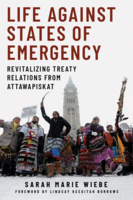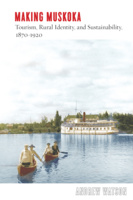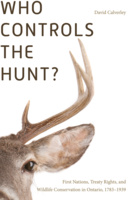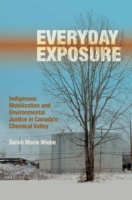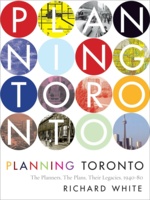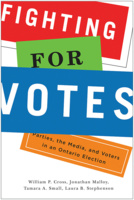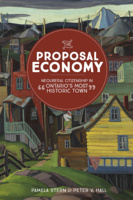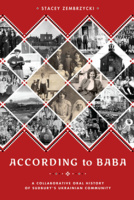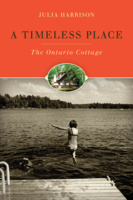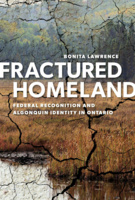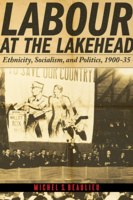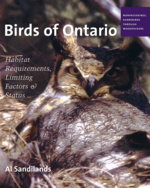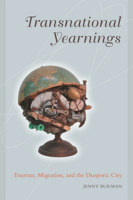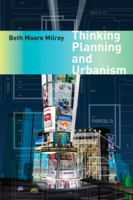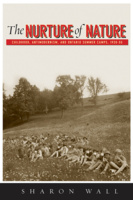Life against States of Emergency
Revitalizing Treaty Relations from Attawapiskat
Life against States of Emergency responds to the central question Attawapiskat chief Theresa Spence asked in a high-profile ceremonial fast: What does it mean to be in a treaty relationship today?
Making Muskoka
Tourism, Rural Identity, and Sustainability, 1870–1920
Making Muskoka traces the first decades of Muskoka’s transformation from Indigenous homeland to a part-time playground for tourists and cottagers and uncovers the consequences for those who lived there year-round.
Who Controls the Hunt?
First Nations, Treaty Rights, and Wildlife Conservation in Ontario, 1783-1939
Tracing the connections between colonialism and the early conservation movement in Ontario, Who Controls the Hunt? examines the contentious issue of treaty hunting rights and the impact of conservation laws on First Nations.
Everyday Exposure
Indigenous Mobilization and Environmental Justice in Canada’s Chemical Valley
Everyday Exposure documents the adverse health effects experienced by Aamjiwnaang citizens in the heart of Canada’s Chemical Valley and argues for a transformative and experiential “sensing policy” approach that takes the voices and experiences of Indigenous citizens seriously.
Planning Toronto
The Planners, The Plans, Their Legacies, 1940-80
This lavishly illustrated book will stand as the definitive history of Toronto postwar planning and of the impact that planning has had on the city and its surrounding metropolitan area.
Fighting for Votes
Parties, the Media, and Voters in an Ontario Election
This book shines a light on how parties, the media, and voters interacted during a recent Ontario election, providing one of the most complete accounts of a provincial election available.
The Proposal Economy
Neoliberal Citizenship in “Ontario’s Most Historic Town”
This book, based on extended ethnographic and multi-method research in a small town in Canada, adds new perspectives on the ways that citizenship is produced and reproduced under conditions of neoliberalism.
According to Baba
A Collaborative Oral History of Sudbury’s Ukrainian Community
This book employs new and critical approaches to oral history to write an insightful and deeply personal history of Sudbury’s Ukrainian community between 1901 and 1939.
A Timeless Place
The Ontario Cottage
An exploration of the personal, social, and cultural meanings of the iconic Canadian cottage.
Fractured Homeland
Federal Recognition and Algonquin Identity in Ontario
An examination of the struggle for identity and nationhood among non-status Algonquin during the negotiation of a major comprehensive land claim.
Labour at the Lakehead
Ethnicity, Socialism, and Politics, 1900-35
This book explores the early years of leftism in Canada through the prism of ethnicity and a dynamic yet divided community in northern Ontario.
Birds of Ontario: Habitat Requirements, Limiting Factors, and Status
Volume 2–Nonpasserines: Shorebirds through Woodpeckers
This volume and its predecessor condense the vast amount of literature on the nonpasserines of Ontario into a compact reference manual that will be essential to biologists, environmental planners, and serious birders.
Transnational Yearnings
Tourism, Migration, and the Diasporic City
By exploring circuits of migration and personal exchange between Toronto and Jamaica, this book maps a new way to look at postcolonial contact zones and transnational migration.
Thinking Planning and Urbanism
By exposing the details of the Dundas Square area in Toronto, this book shows how city planners can be overwhelmed by the machinations of money and power, and why the planning field is ill-equipped to find creative solutions for post-industrial problems.
The Nurture of Nature
Childhood, Antimodernism, and Ontario Summer Camps, 1920-55
This book explores how antimodern nostalgia and modern sensibilities about the landscape, child rearing, and identity shaped the history of summer camps.

